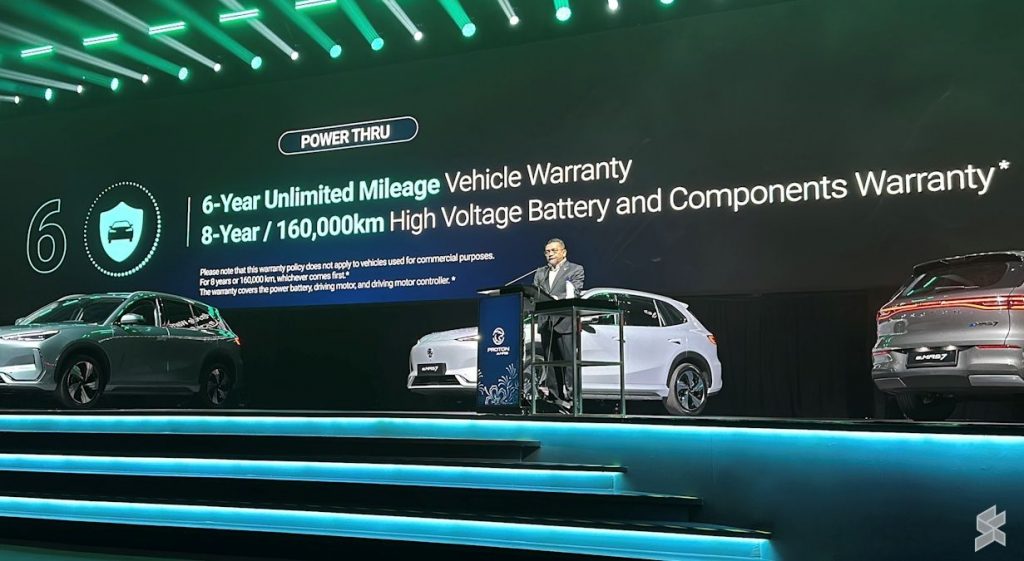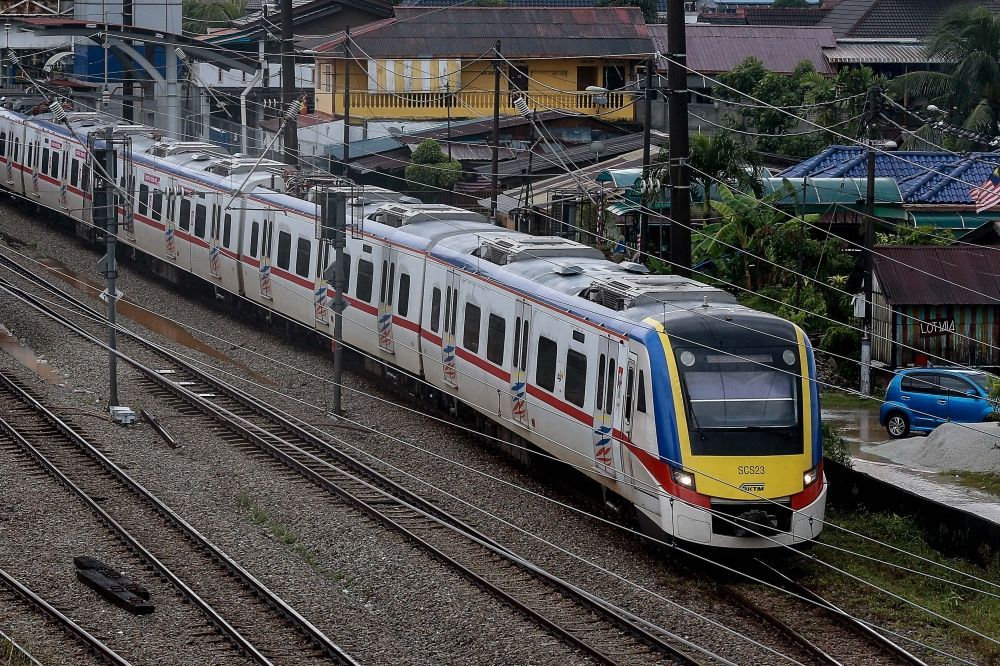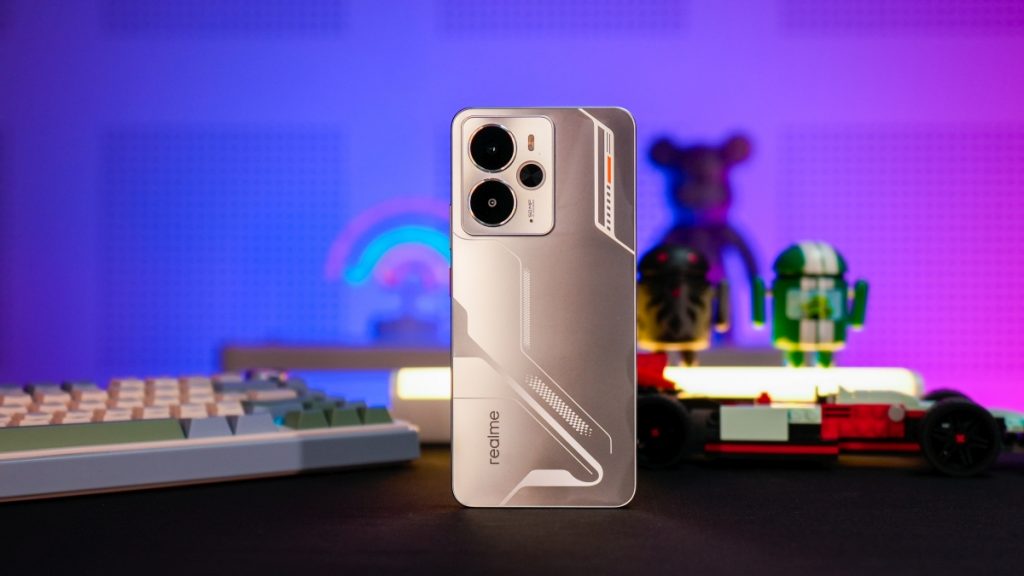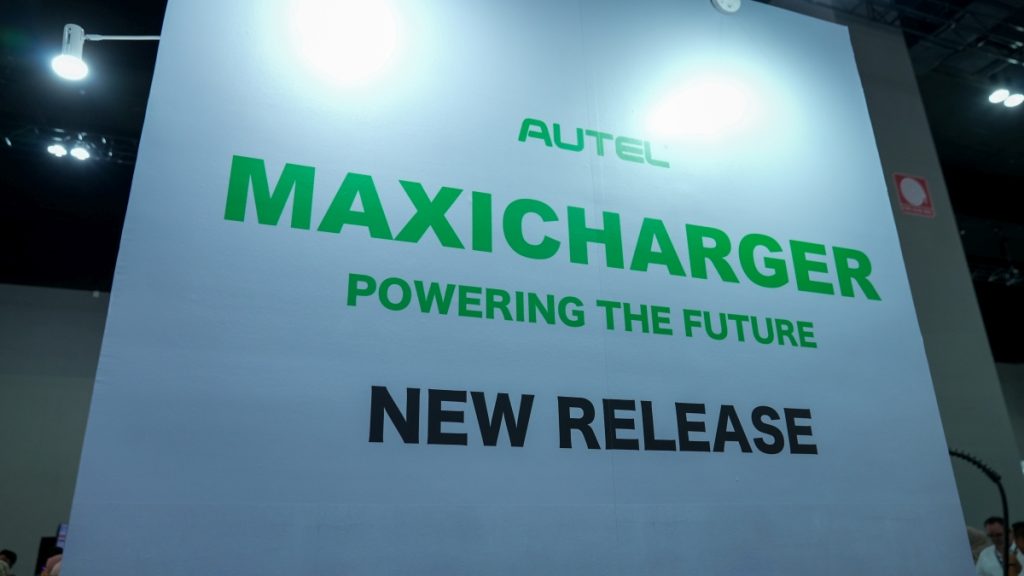The Proton e.MAS 7 comes with an LFP-based Aegis Short Blade Battery that boasts a high energy density of 192Wh/kg. For greater peace of mind, Proton’s first ever EV comes with a 6-year unlimited mileage vehicle warranty and a longer 8-year / 160,000km high voltage battery and components warranty.
Pro-Net has further clarified that its 8-year / 160,000km warranty for the high voltage battery comes with a 1 to 1 replacement if the State of Health (SoH) falls below 70% during the warranty period. This means if your Proton e.MAS 7 suffers severe degradation in usable driving range, you’ll receive a free battery replacement if the battery health falls below the 70% threshold.
Proton e.MAS 7 Battery Warranty on par with other leading EV brands
With this EV battery policy, the warranty of the e.MAS 7 is on par with other leading EV brands including BYD and Tesla.
As listed, the high voltage battery and components warranty covers the battery, driving motor and driving motor controllers. However, take note that there’s a fine print that mentions that the warranty policy does not apply to vehicles used for commercial purposes.
As a reference, BYD Malaysia offers 6-year / 150,000km warranty for the vehicle and 8-year / 160,000 km warranty for the traction battery with a SoH of 70% and above. Meanwhile, its Drive Unit comes with a 8-year / 150,000 km warranty.
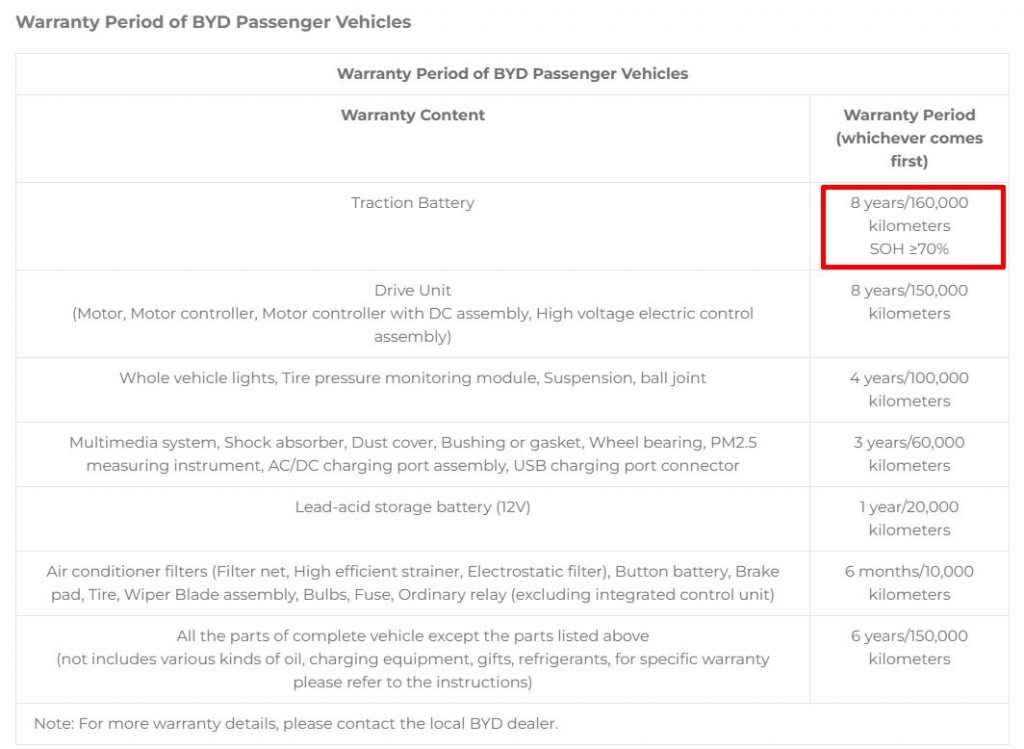
Meanwhile, Tesla’s new vehicle warranty offers Basic Vehicle Limited warranty of 4-years / 80,000km, while the supplemental restraint system is covered with a 5-year/100,000km warranty.
For the battery and drive unit, the Tesla Model 3 and Model Y RWD variants come with an 8-year / 160,000km warranty with a minimum 70% retention of battery capacity. However, its Long Range and Performance models come with an 8-year / 192,000km warranty which also offers a minimum 70% retention of battery capacity.
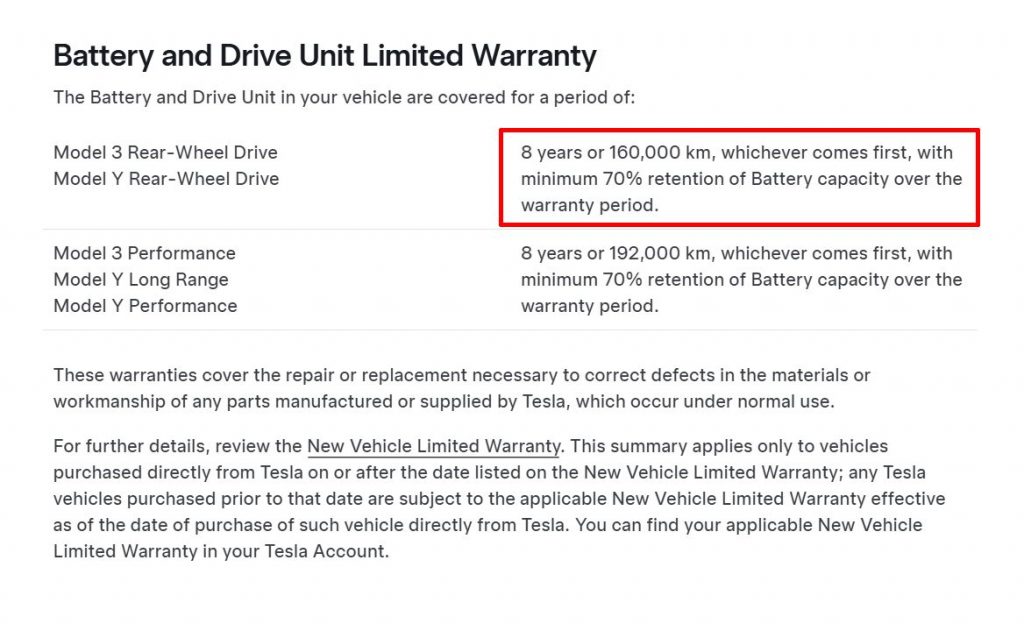
If you do get a repair or a replacement by Tesla, they offer a limited warranty of 4-years / 80,000km for the high voltage battery.
EV Batteries are probably the last thing you need to worry
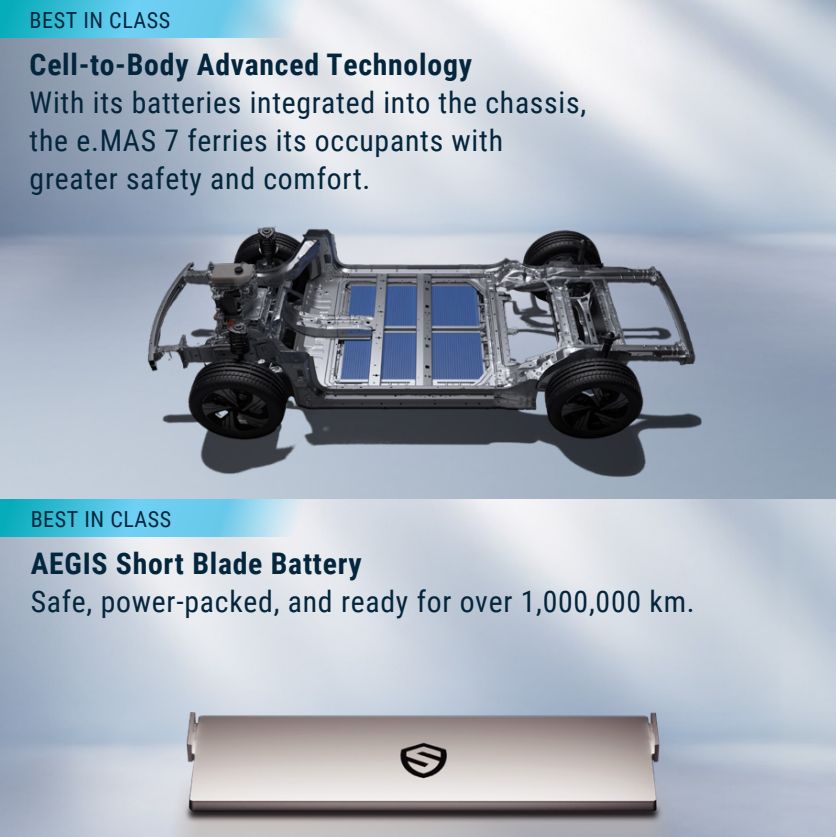
There’s a huge misconception that EV batteries need to be replaced after 5 years or when the warranty ends. While the cost of a new battery could be anywhere between 40-60% of the total cost of a brand new EV, the reality is that the high voltage battery is probably the last thing you’ll need to replace. These batteries are designed to last longer than the typical lifecycle of the car.
Based on Geely’s tests, the new Aegis short blade EV battery technology is able to support 3,500 cycles which is equivalent to driving for 1,000,000 km with minimal impact to battery range. That’s equivalent to driving 20,000 per year for 50 years!
Geely has also put the high voltage battery through rigorous torture tests which include seawater corrosion immersion, extreme cold environment, high-frequency pack bottom scraping, 26-ton overweight rolling, single-pack side collision and fire roasting. With its grid frame design, energy-absorbing cavity, three-layer sandwich bottom guard plate, Cell-to-Body integration, thermal runaway control system and other safety features, Geely says the Aegis battery has passed all six tests successfully.
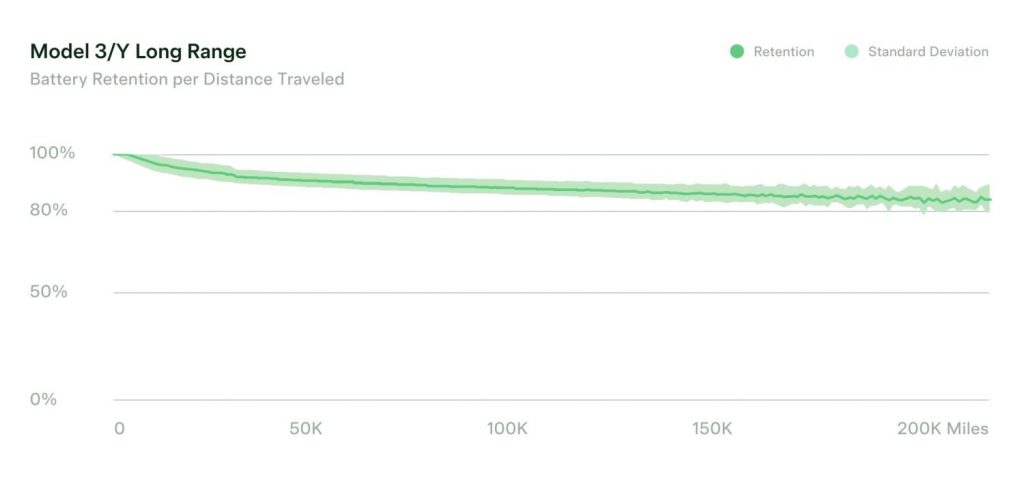
If we look at other established players like Tesla, they have shown that their high-voltage batteries on the Model 3 and Model Y Long Range are able to retain over 80% of its original capacity after clocking 200,000 miles (Over 321,000km).
In the UK, Geotab have found that the degradation of EV batteries is about 1.8% per year and the vast majority of batteries would outlast the usable life of the car. So in 10 years of ownership, you’re looking at having a minimum of 80% SoH which still a lot of range for most drivers. The findings were based on analysis of battery health of approximately 5,000 EVs with about 1.5 million days of data.
It added that the average battery health has improved by 22% over the past five years as the degradation was previously at 2.3% per year back in 2019.
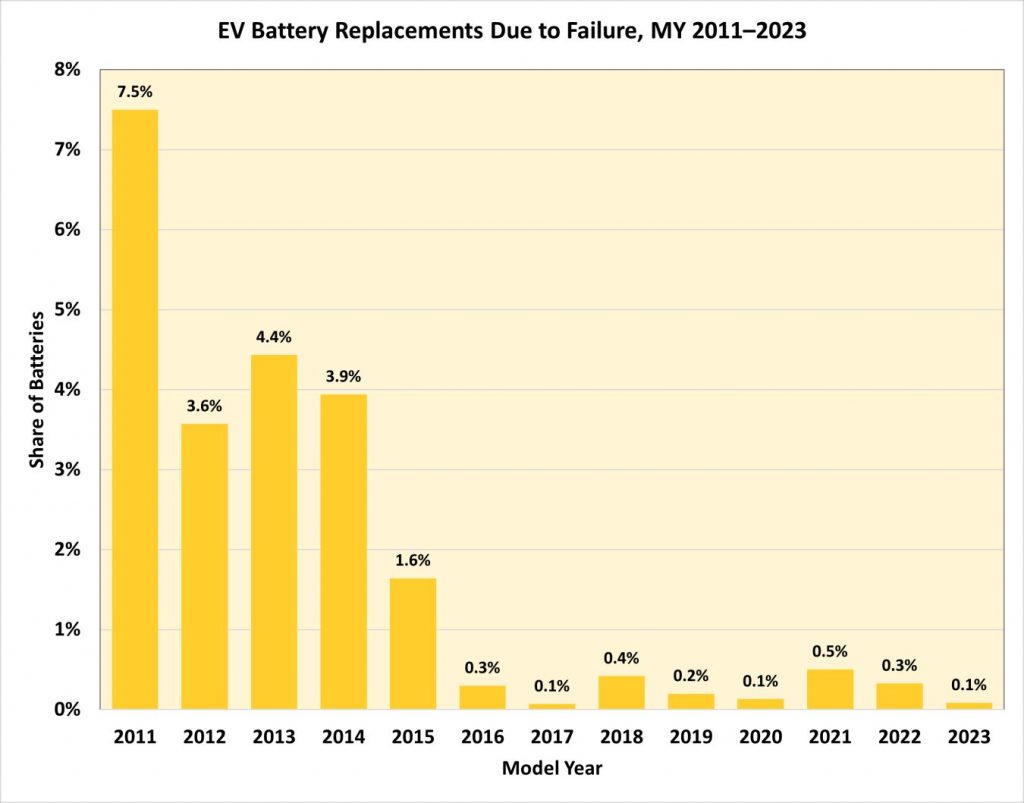
Another study by Recurrent which analysed 15,000 vehicles from 2011 to 2023 have shown that high-voltage battery replacements are very rare and the replacement due to failure has dropped to less than 1% since 2016.
The improvement in reliability in high-voltage batteries for EVs are attributed to improved technologies which include active liquid cooling, optimised thermal battery management and improved battery chemistries. With new technologies, high-voltage batteries in EVs not only last longer with more charge cycles and lower degradation, but the cost of batteries will be cheaper as well.
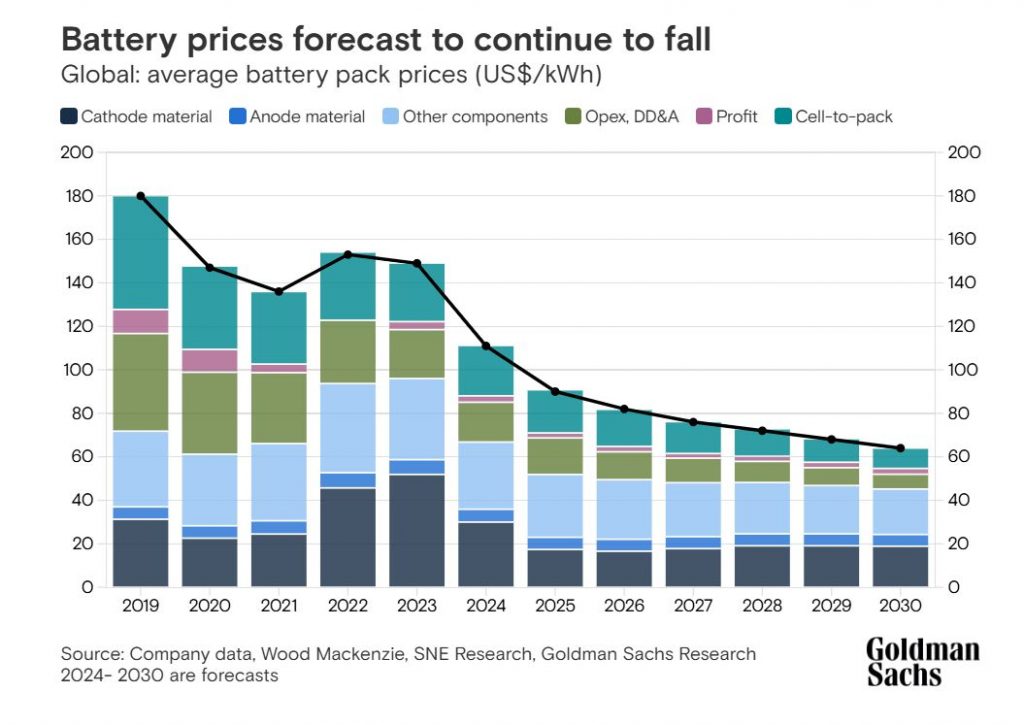
Analysts are forecasting that the cost of batteries would drop to USD 111 per kWh (about RM500 per kWh) by the end of this year and it could decline further to USD 80 per kWh (about RM360 per kWh) by 2026, which is almost a 50% price drop from 2023.
So based on these data, you shouldn’t worry about your EV battery degrading as fast as smartphones. While degradation does happen, you will still have plenty of usable mileage even out of warranty.
In fact, there are still first generation Nissan Leaf and Renault Zoe EVs that are over 10 years old in Malaysia, which are still running on their original high-voltage batteries. Take note that these are old generation batteries which lack thermal management systems currently offered as standard in most EVs sold today.

